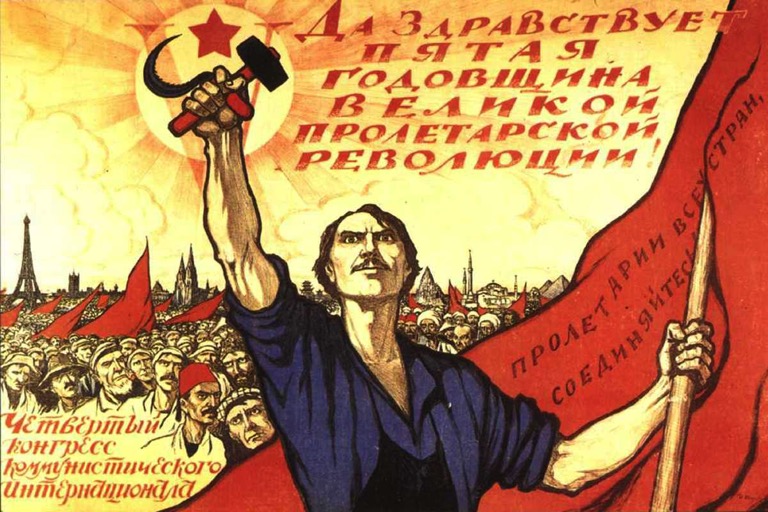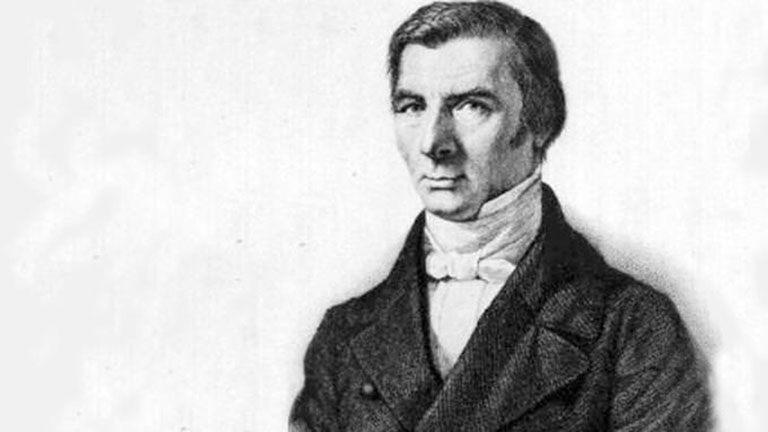by Antony Sammeroff for the Mises Institute
Capitalism has often been described by as “a system of competition” by its adversaries, or a system “based on competition.” Naturally, this assertion is usually coupled with a spirited oration on how this “tooth n’ nail” competition psychologically corrupts us – pitting man against man in a “race to the bottom.”
Many of capitalism’s most vocal advocates have, themselves, imbibed this premise uncritically. They leap to fervent defenses of competition, extolling its virtues — real or perceived. In my view, this is a mistake. To accept without evaluation the presupposition that capitalism is a system of competition — in contrast to other hypothetical systems of cooperation (namely socialism and communism) — is to frame the very debate itself in leftist terms and play the game on an unfairly tilted game-board.
Competition Is Fierce for Government-Controlled Resources
This is not to say that those who defend competition do not raise some worthy points. For example: If not competition, then what is the alternative? Is there to be one central provider of each good and service available who gets to decide on our behalf how it is best to be produced and then allocated? Add to that, that if competition is wrong in the market, then why not in the political sphere? Surely democracy is out of the question if competition is a corrupting factor, because what do political candidates do if not compete for office? Think of the competition this generates between political parties, not to mention the ensuing competition between firms and individuals for preferential treatment from politicians and legislators, competition between lobbyists, think-tanks, and voters, to receive benefits out of the public purse. If the free and voluntary section of society is a system of competition, how much more so is government? Surely democracy is a “system of competition.” Politicians are competing for the very machinations of control in our society. For the right to pass and enforce laws which apply to everyone (whether they agree with them or not) and to force them to pay for their enforcement. They are not simply competing for market share where the winner of the competition is the one that satisfies the most demand. We can sidestep the more mundane economic arguments in favor of competition for the moment, such as the case that it increases efficiency and cheapens goods while driving innovation, as we are all familiar with them already.
Capitalism Is About Voluntary Exchange
This is not to say that competition is necessarily an evil either. The problem lies in defining capitalism as “a system of competition” — in comparison to other systems which are supposedly “cooperative” — is a rhetorical ploy. Those who profess it may honestly believe it to be so, but it’s not true. Capitalism is not “a system of competition.” any more than any other system. Capitalism (at least in its free-market, laissez-faire ideal) is a system of the voluntary exchange of goods and services in the absence of physical coercion, theft, compulsion or fraud, predicated upon the fundamental right to own and accumulate property.
Or, for brevity: Capitalism is a system of voluntary exchange, predicated upon the right to own property.
One might even venture, therefore, that it is capitalism that is the system most characterized by cooperation.
Granted, upon seeing this definition, many would still debate us over the morality of accumulating property. Or perhaps whether the “negative” right to ownership when it comes to the rich should take precedence over the “positive” right to healthcare or education at their expense when it comes to the poor. We can even debate whether the relationship between capitalists and their employees are really free of coercion given the power disparity between the two groups. Indeed these are debates I delight in exploring further. However, none of this is a justification for defining capitalism as a system of that is more competition-based than others.
Because Scarcity Exists, Competition Will Always Exist Under Any System
After all, it is not the presence of private property or the free exchange of goods that creates the presence of competition in a capitalist system. Scarcity causes that. In any situation of scarcity of resources, there is bound to be some form of competition over those resources (as well as over how those resources are allocated).
If we have a system that allows voluntary exchange, some competition is bound to arise out of that, but that would happen under any system. Even if you had a completely communistic society, which was centrally planned and involved no exchange of money whatsoever, people’s time would still be limited. If you were a filmmaker in this society, you would probably want as many people to see your films as possible. As would every other film-maker. This would put you at least somewhat in competition with them. Does this mean that communism, too, is a system of competition? Certainly, you would be competing for the only customer — the sponsorship of the state. Corruption and cronyism would surely be the result. Who gets their film made and who doesn’t? Who allocates the highly desirable job of being a film-maker over the undesirable job of being a street-sweeper or refuse collector, and how can their favor be courted? The competition will commence, but instead of being decided by the free and voluntary exchange of film-goers, investors and film-makers it will be decided by someone else, I would argue, in a rather more authoritarian fashion. (For a particularly vivid and chilling illustration of how communism substitutes market competition over customers (which is at least tied to the provision of desirable services) for the completely unmeritocratic competition over gaining favor from the corrupt power structure of the state, I refer the reader to Ayn Rand’s first novel, We The Living.)
Competition is just a feature of living in a world of scarcity and would exist in any system. Socialism cannot do away with competition – nor can any other system.
Opportunity Cost Means Competition Is Everywhere
The implications of these facts reach into any circumstances of scarcity beyond the economy. For example, supposing two friends each invite me over to dinner of an evening, I might have to make a choice between their invitations which will result in one of them losing out on my company. Does this then mean that friendship is a system of competition?
We can’t see all of our friends all of the time, or even all of them at the same time. Even if we do, we are bound to have to split our attention between them. In addition to that, we can only maintain so many close friendships at once, and we definitely can’t be friends with everyone. All of this means that inevitably we have to make choices. We each make decisions on who to make and maintain friendships with based upon our value judgments, conscious or unconscious. Perhaps based on how happy we feel around them, how long we have known one another, how much we have in common, how much we trust someone or how loyal they have shown themselves to be, how much they educate, enrich or enlighten us, or perhaps based upon what roles they allow us to fulfill in their lives. There can be countless other reasons. The fact is we decide. People who feel that they will benefit from our company, for whatever reason, will make attempts to spend time with us. We will invariably begin to make choices on who to spend time with based upon our values, schedule, and what other activities we are willing sacrifice to see them. These are basic facts of life, but they hardly make friendship a system of competition.
Similarly, on the market, our time and resources are limited. We make value-based judgments about choices of products and services to consume based upon what utility we think they will bring to us, sacrificing some options to others. Maybe we will choose a coffee shop based on which has the best-tasting coffee, or maybe based on which provides the nicest atmosphere, or maybe based on which is closest, or where the customer service is best, or which is the cheapest, or which we have gone to the longest and therefore find familiar, or perhaps even based on which we think has the best ethos — for example, because they are a social enterprise that only sells fair trade produce and deliberately seeks to employ and train disadvantaged people. The fact is we decide. Each service provider believes they will benefit from our custom and will make attempts to attract us, placing an upward pressure on the quality of services and a downward pressure on price which we may correctly identify as a form of competition. Since human beings are not infallible, sometimes someone might buy a coffee that they don’t end up liking, but over the long term, the competition is likely to be won by the satisfaction of customers.
The Benefits of Free Choice
The miraculous wonder we miss when we focus our attention upon the competition which derives from choice is the ability to choose itself. For example, supposing two commercial events are being held on the same evening. Each prospective patron will want to choose whichever event appeals to them the most, and for whatever reasons they choose based upon what they value in an event. Now, to simply mention that these events are “in competition”
The Mises Institute, “Austrian Economics, Freedom, and Peace”
Do you find these posts helpful and informative? Please CLICK HERE to help keep us going!










